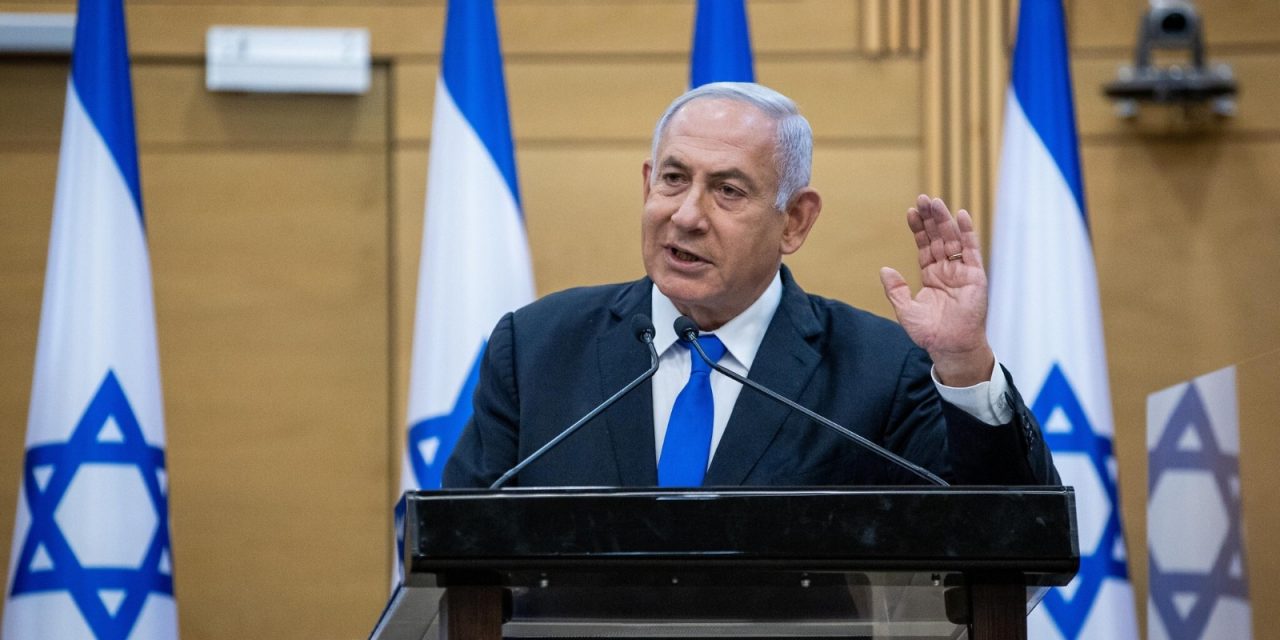
Netanyahu Publicly Rejects US Push For Palestinian State After Gaza War2 min read

Increasing tensions between Israel and the US have burst into the open, with Prime Minister Benjamin Netanyahu angrily rejected any moves to establish a Palestinian state when the conflict in Gaza ends.
Despite some lukewarm endorsements of a two-state solution across his political career, Mr Netanyahu has mostly sought to obstruct the idea, but this is his sharpest rebuttal of what is foreign policy for staunch ally the US. It comes as Mr Netanyahu is under increasing international pressure to rein in Israel’s military operations in Gaza, that health officials in the Hamas-run territory has left almost 25,000 Palestinians dead.
The prime minister repeatedly said on Thursday that Israel would not halt its offensive in Gaza until the goal of “absolute victory” over Hamas is fulfilled. Mr Netanyahu, whose domestic political support has plummeted since Hamas’s 7 October attack on southern Israel that killed about 1,200 Israelis and saw another 240 people taken hostage, appeared to explicitly tie his own political survival to operations inside Gaza.
In a nationally televised news conference, Mr Netanyahu said: “We will not settle for anything short of an absolute victory.”
He also said Israel must have security control west of the River Jordan, which would include the territory of any future Palestinian state. “This is a necessary condition, and it conflicts with the idea of [Palestinian] sovereignty. What to do? I tell this truth to our American friends, and I also stopped the attempt to impose a reality on us that would harm Israel’s security,” he said.
He added that the offensive would take “many more months” and would include the return of the remaining 130 Israeli hostages. Israel’s war on Hamas in Gaza has uprooted around 85 per cent of the territory’s 2.3 million people from their homes, with aid agencies warning of the increasing toll that airstrikes, ground operations and a blockade are taking on residents.
Mr Netanyahu’s statement triggered a sharp response from Washington – with President Joe Biden having expended plenty of political capital in supporting Israel’s war.
“We obviously see it differently,” said John Kirby, the White House national security spokesperson, adding that Mr Biden would “not stop working” toward a two-state solution.
US secretary of state Antony Blinken on Wednesday said the two-state solution was the best way to protect Israel, unify moderate Arab countries and isolate Israel’s arch-enemy, Iran.
Without a “pathway to a Palestinian state” Israel would not “get genuine security”, he said at the World Economic Forum in Davos, Switzerland.
Hardline members of Mr Netanyu’s coalition government has long opposed the two-state solution, arguing that a Palestine state would become a launching pad for attacks on Israel.
Mr Netanyahu’s opponents accuse him of delaying any discussion of postwar scenarios to avoid looming investigations of governmental failures, keep his coalition intact and put off elections. There has also been increasingly visible frustration among senior Biden officials with the Israeli prime minister.
Mr Netanyahu certainly appears to have tied his own political survival to events in Gaza.


















